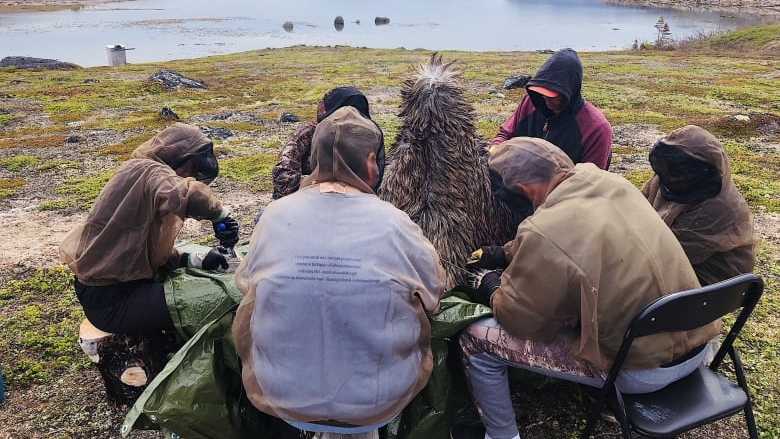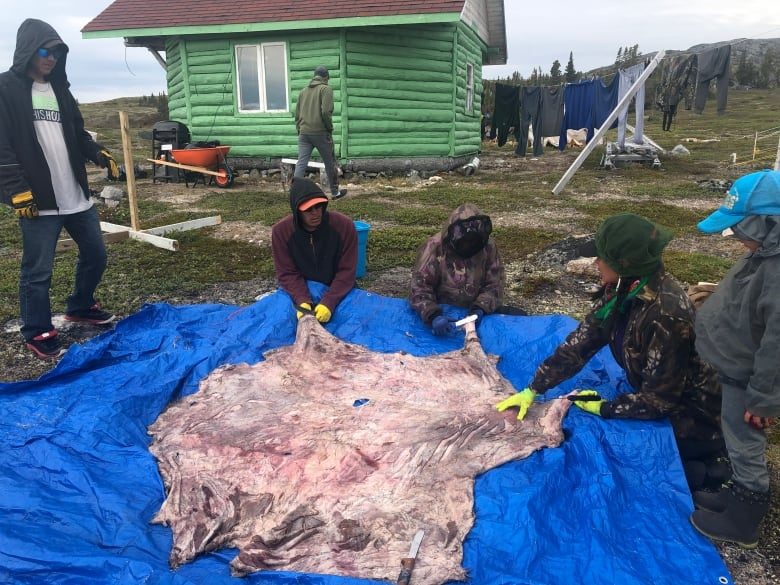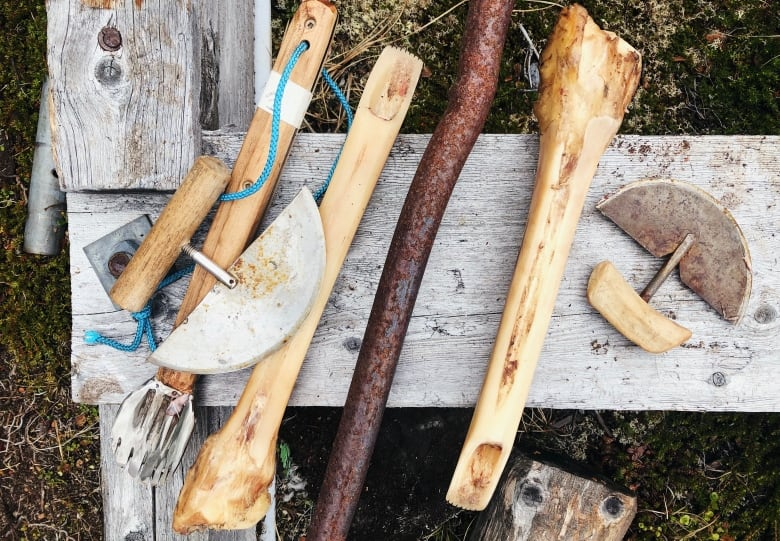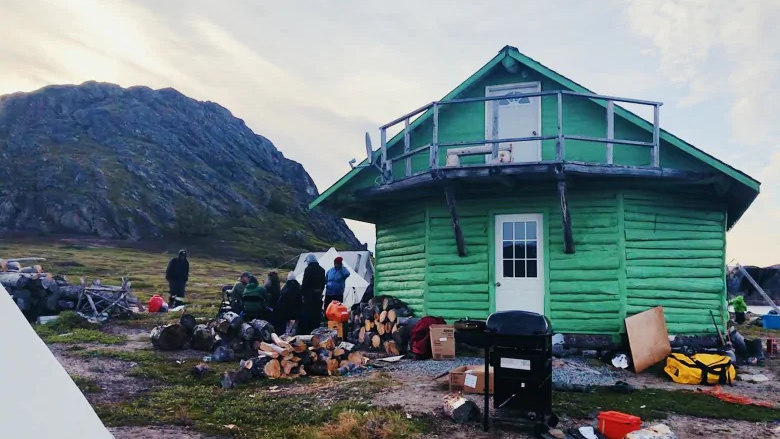Atlantic Canada: Dene elders visit Nain to teach traditional moosehide techniques to Inuit

It’s never too late to make new traditions, as the Inuit people of northern Labrador, Atlantic Canada are proving this week by opening their communities to elders from a different part of the country.
Members of the Dene First Nations have come from Northwest Territories to Nain to teach people how to cure moosehide.
Workshop co-ordinator Brianna Brown said it was a necessary skill to learn after the provincial government imposed a ban on hunting the George River caribou herd in 2013.
“We kind of switched to moose and we noticed a lot of the moose was going to the dump because people didn’t know how to preserve it,” she said.

“So we thought it was a good idea to get the Dene people to come down and do a workshop to teach us how to preserve the moose so we could learn this skill and pass it down to other generations.”
Moosehide is much tougher than caribou, and requires different tools, skills and techniques.
The workshop is 10 days long, taking participants through the entire process from beginning to end.
Brown said about 30 people are taking it in, with hopes they’ll return to communities throughout Nunatsiavut and teach the skills to their fellow community members.

“Everyone really likes it. They find it really interesting. They’ve never done anything like it before,” she said. “It’s all very, very different for us.”
The process to prepare one hide takes about 10 days. There are six hides in total in Nain, which will take about two months to fully prepare.
Brown said they might make jewelry with them, or moccasins.
Five members of the Dene First Nations made the trek to Nain. Their tents, set up at the site of the workshop, have become a gathering place for the townspeople during their stay.

“It’s a good opportunity to get together and engage with one another, communicate,” Brown said. “It’s a great cultural exchange experience between two Indigenous groups.”
After they leave, Brown said, they’ll keep information from the lessons and make it available to everyone in the community.
“If anyone needs it, they can come to the research centre and get instructions on how to do it. So hopefully we won’t see any waste with any of the moosehides, and that would be very great to see in our communities.”
Related stories from around the North:
Canada: Southern Inuit in Atlantic Canada renew call for hunters to refrain from George River caribou harvest, Eye on the Arctic
Finland: Gold mining in northern Finland hurts reindeer, says Natural Resources Institute, Yle News
Norway: Saami Council says planned Arctic railway threatens reindeer herders, The Independent Barents Observer
Russia: Russia plans fenced parks to confine reindeer herding in Arctic, The Independent Barents Observer
Sweden: Indigenous reindeer herders request emergency aid after drought, wildfires ravage Sweden, Eye on the Arctic
United States: Amid shrinking sea ice, hunters race to adapt in Alaska, Alaska Public MediaGeorge River



